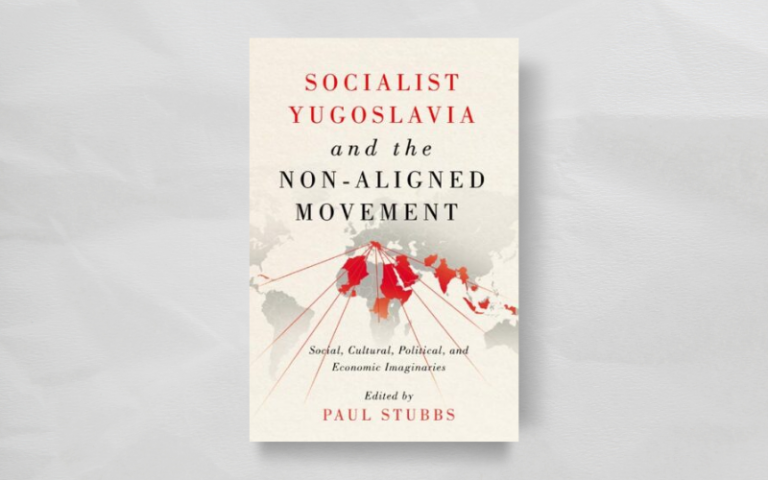Socialist Yugoslavia & the Non-Aligned Movement: Social, Cultural, Political & Economic Imaginaries
10 March 2023, 4:00 pm–6:00 pm

A SSEES Southeast European studies book panel discussion
This event is free.
Event Information
Open to
- All
Availability
- Yes
Cost
- Free
Organiser
-
SSEES
Location
-
Gordon House 10629 Gordon SquareLondonWC1H 0PY
After a summit in Belgrade in September 1961, socialist Yugoslavia, led by President Josip Broz Tito until his death in 1980, initiated a movement with states in the Global South. The Non-Aligned Movement not only offered an alternative to the Cold War polarization between the two hegemonic power blocs but also expressed the hopes of a world emerging from colonial domination.
Socialist Yugoslavia and the Non-Aligned Movement investigates the Non-Aligned Movement both as a top-down, inter-state initiative and as a site for transnational exchange in science, art and culture, architecture, education, and industry. Through a multi-disciplinary approach, the book seeks to reveal, rather than ride roughshod over, the contradictory role of socialist Yugoslavia in the decolonial struggles of the Global South. Chapters address topics such as women’s involvement, anti-fascism and anti-imperialism, cultural and educational exchange, tensions in Yugoslav diplomacy, competing understandings of economic development, the role of the Yugoslav construction company Energoprojekt, Yugoslav relations with Latin America and Africa, and contemporary support for refugees and asylum seekers as a kind of practical and affective afterlife of Yugoslavia’s non-aligned commitments.
Socialist Yugoslavia and the Non-Aligned Movement offers an innovative approach to one of the twentieth century’s most important international movements and confronts issues of economic, social, and cultural rights that remain relevant today. This Book Panel Roundtable uses the book as a starting point for an exploration of the legacies of the Non-Aligned Movement and the role of socialist Yugoslavia in global order, discussing priorities for multi-disciplinary research in the future.
Panellists:
Paul Stubbs is a sociologist and currently a Senior Research Fellow in the Institute of Economics, Zagreb, Croatia, the editor of the book and author of the Introductory chapter. His research interests include: global social policy, policy translation, new left-green urban political movements, and poverty and social exclusion. He is currently working on a history of the New International Economic Order.
Dubravka Sekulić is an architect and educator whose work focuses on the investigation of the transformation of the contemporary city and the relation between laws, property, and space. She is interested in understanding the (built) environment as an archive and unsettling the commonsense of architecture. She is a senior tutor at the School of Architecture, Royal College of Art, London, and holds a PhD in architectural history and theory from the gta Institute for History and Theory, Department of Architecture, ETH Zürich. She is the author of a chapter in the book ““The Sun Never Sets on Energoprojekt ... until It Does”: The Yugoslav Construction Industry in the Non-Aligned World”.
Peter Willetts is Emeritus Professor of Global Politics at City, University of London. He started studying the Non-Aligned in 1970, as a PhD student, and his thesis was published as The Non-Aligned Movement: The Origins of a Third World Alliance in 1978. This was followed by The Non-Aligned in Havana in 1981. From 1979 to today, he has contributed a review of each year’s activities of the Non-Aligned Movement for the Annual Register of World Events. He is the author of a chapter in the book “The Foundations of the Non-Aligned Movement: The Trouble with History Is That It Is All in the Past”.
Ranka Primorac grew up in non-aligned Yugoslavia. She has degrees from the Universities of Zagreb, Zimbabwe and Nottingham Trent and she is currently an Associate Professor of African Literature at the University of Southampton. Her research interests include world literature, African literatures and cultures, histories and theories of the novel, and non-alignment and race in world history, literature and art.
 Close
Close

